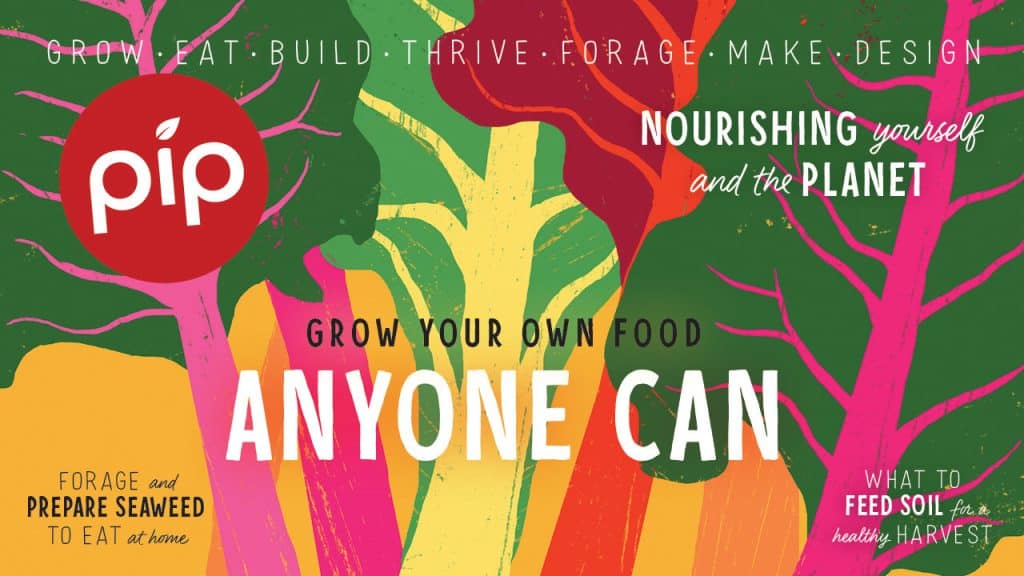
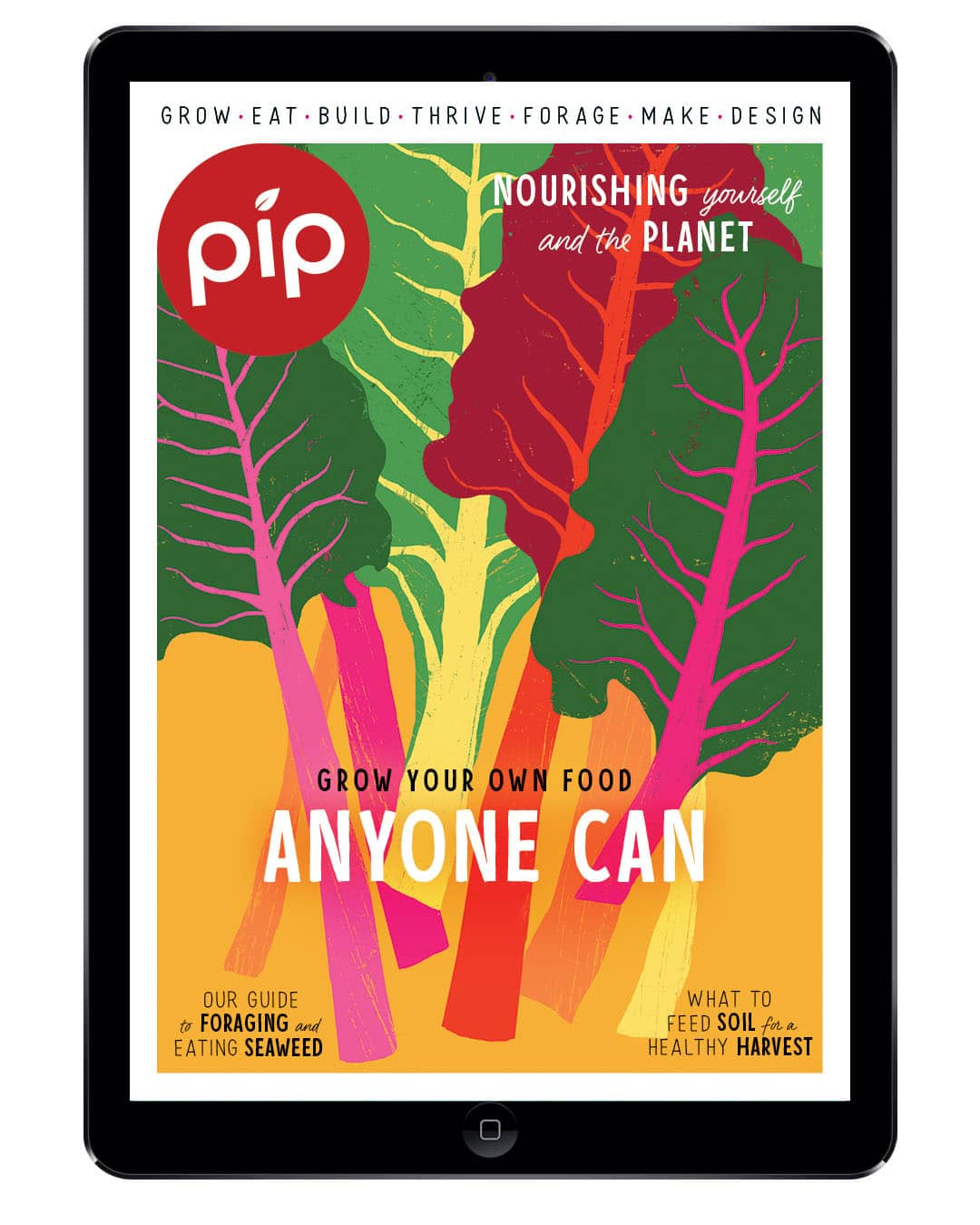
Issue 29 Flipbook
The winter solstice is behind us, spring is on the way and Pip’s Issue 29 is packed full of inspiration and information to start the new season on the best foot. As well as debunking the myths about soil preparation and showing how everyone can…
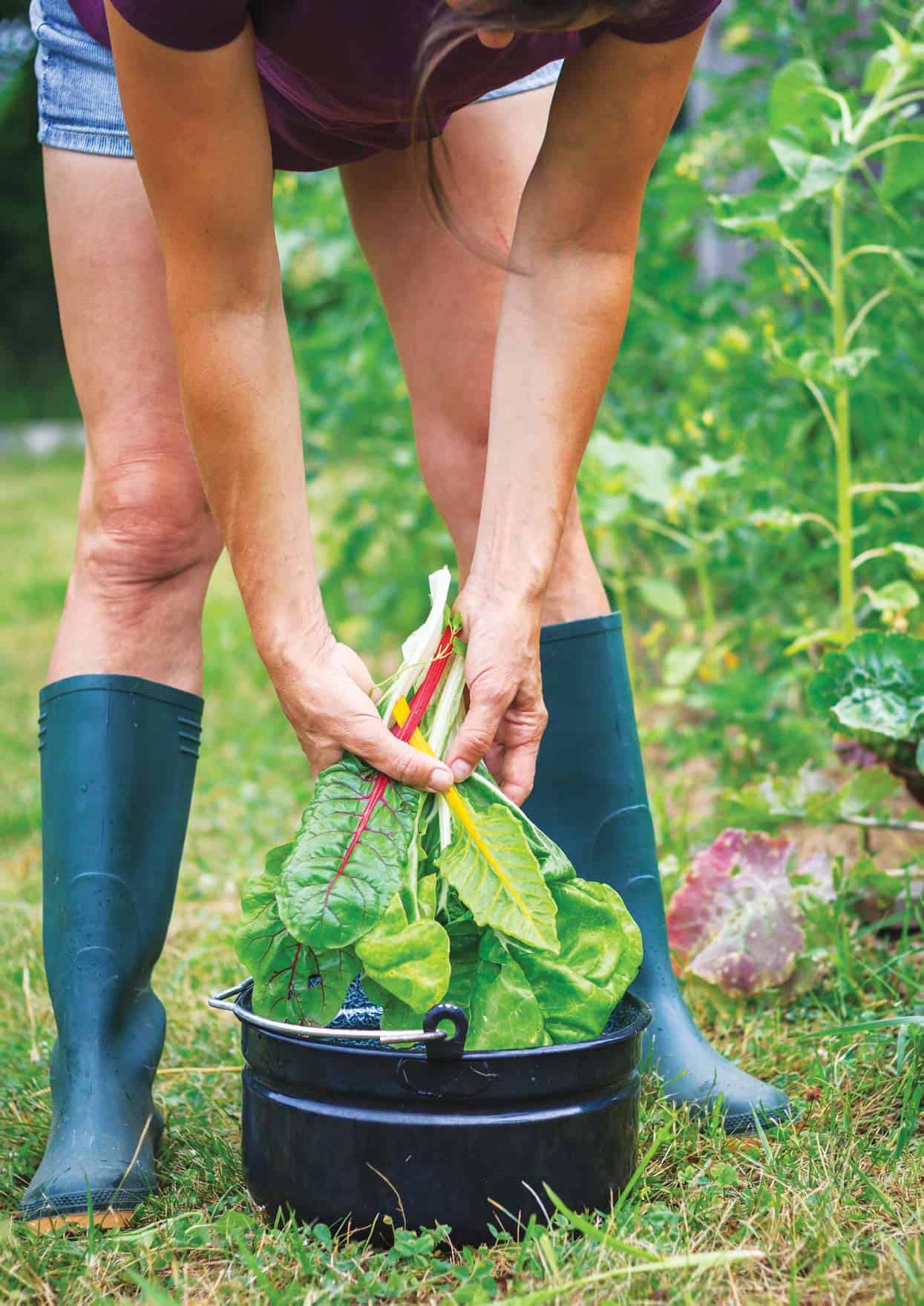
ANYONE CAN – Grow your own food
It’s easy to think you need a big backyard, lots of knowledge and plenty of spare time in order to be able harvest homegrown food for you and your family. But by understanding the space you have and what you consume the most of, there’s…
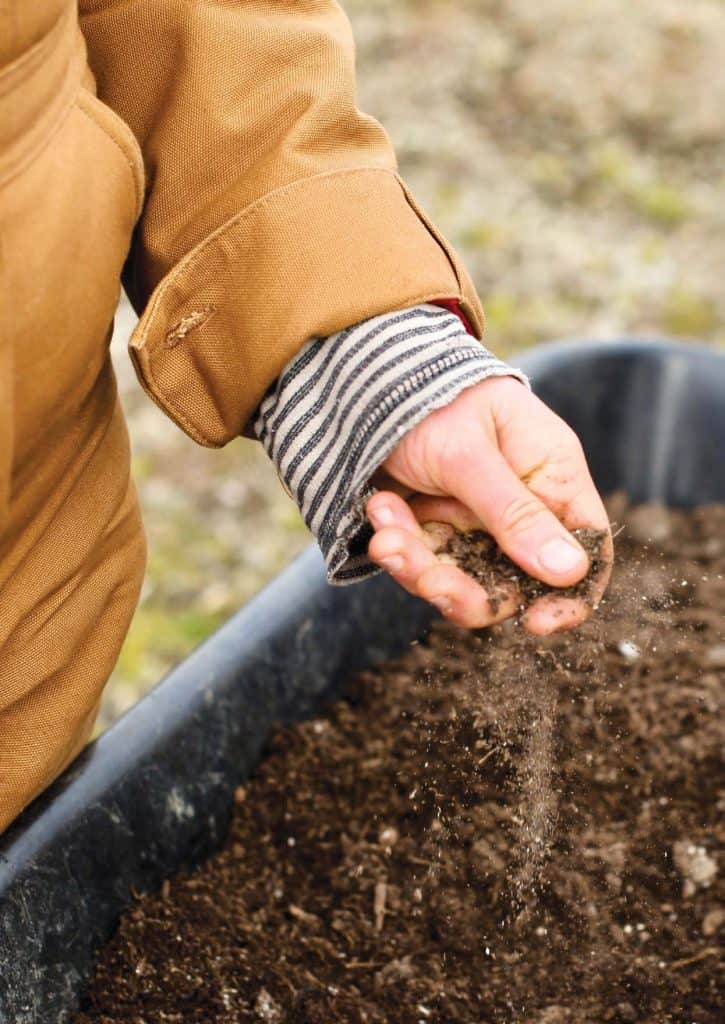
DOWN TO EARTH – Soil amendments
Now’s the time to get your soil ready for spring seedlings and summer harvests. Let’s consider the what, why and how of the various ways of feeding your soil and plants with compost, fertilisers and minerals.
Healthy soil is the foundation every garden needs. You might…

OCEAN GREENS – How to harvest & prepare seaweed
Seaweed lives and grows in the nutrient- rich waters of the ocean, where it absorbs important vitamins, minerals and trace elements which are often lacking in food grown in soil.
By eating seaweed, we are increasing our vitamin and mineral consumption. The more diverse types of…
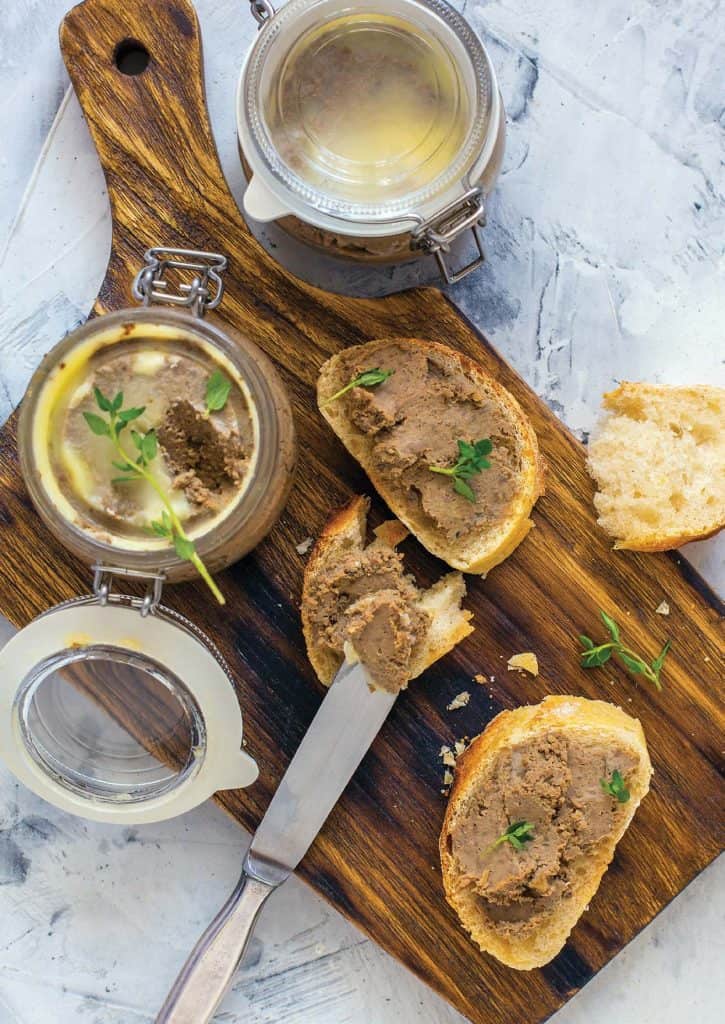
VITAL ORGANS – Incorporating offal into your diet
Underrated and misunderstood, incorporating offal into our diets is highly nutritious and inexpensive way to eat more sustainably.
You don’t have to go back very many generations to find a time when organs were the most prized part of an animal to consume. As well as…
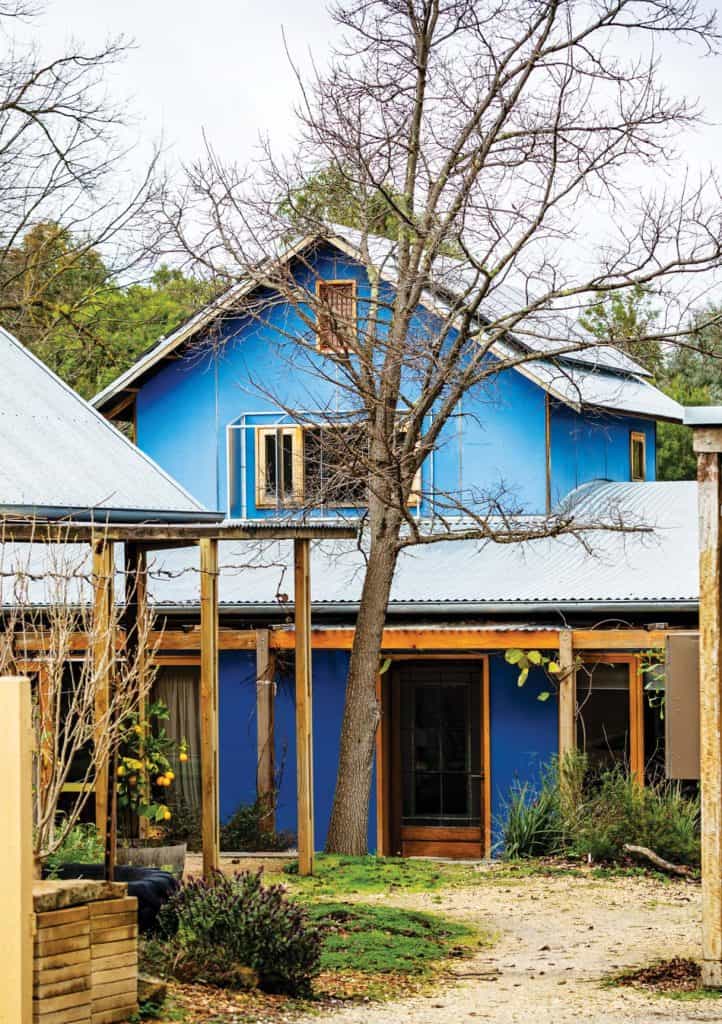
FOREVER HOME – Local and recycled
This diminutive Castlemaine home was a passion project by retirees with a bold dream to live comfortably, without debt and to use as many natural and recycled materials as they could.
At the ages of 66 and 62 respectively, Fay and Terry White decided the best…
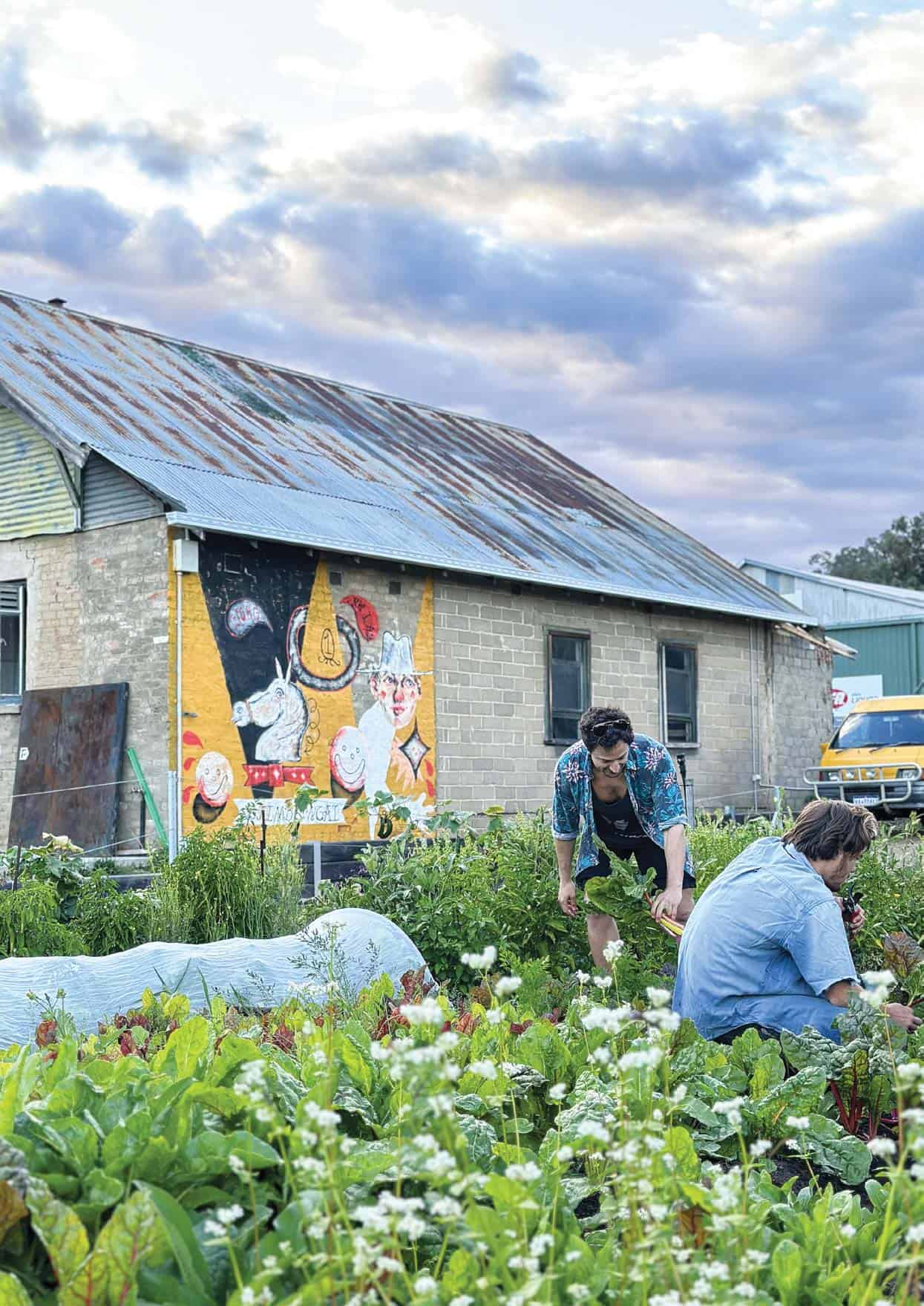
ACRES AND ACRES – Community co-op
Thanks to a vision to prioritise food security, sustainable practices, entrepreneurial opportunities and wellbeing initiatives for the community, the regional Victorian town of Corryong has shown that from adversity comes new beginnings.
When a group of food-growing enthusiasts gathered at the local Corryong Food Swap after…

SELF CARE – Wellbeing
An overwhelmingly positive response to Robyn’s honest and revealing feature last issue speaking to the idea that we can’t do it all and that that’s okay got the Pip team thinking about the importance of self care.
In a world where success is often defined by…
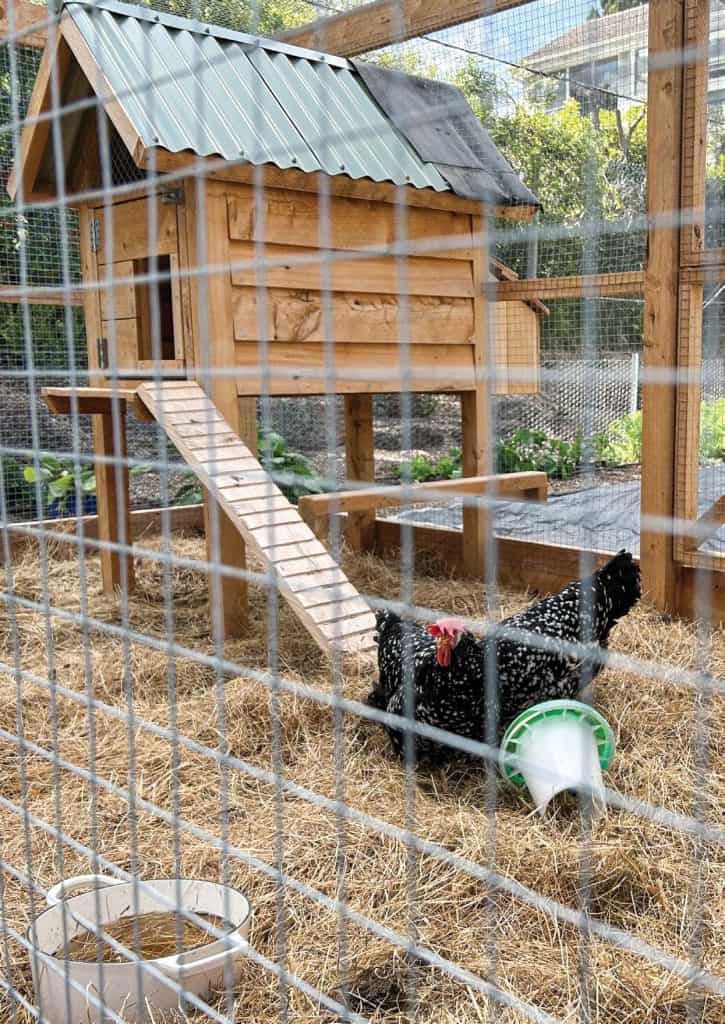
CHICKEN COOPS – Housing chooks
The arrival of spring’s warmer weather is a great time to introduce chooks into your patch. More than just protection from weather and predators, a chicken coop needs to be well considered to ensure your flock stays happy, healthy and laying.
Integrating a flock of chickens…
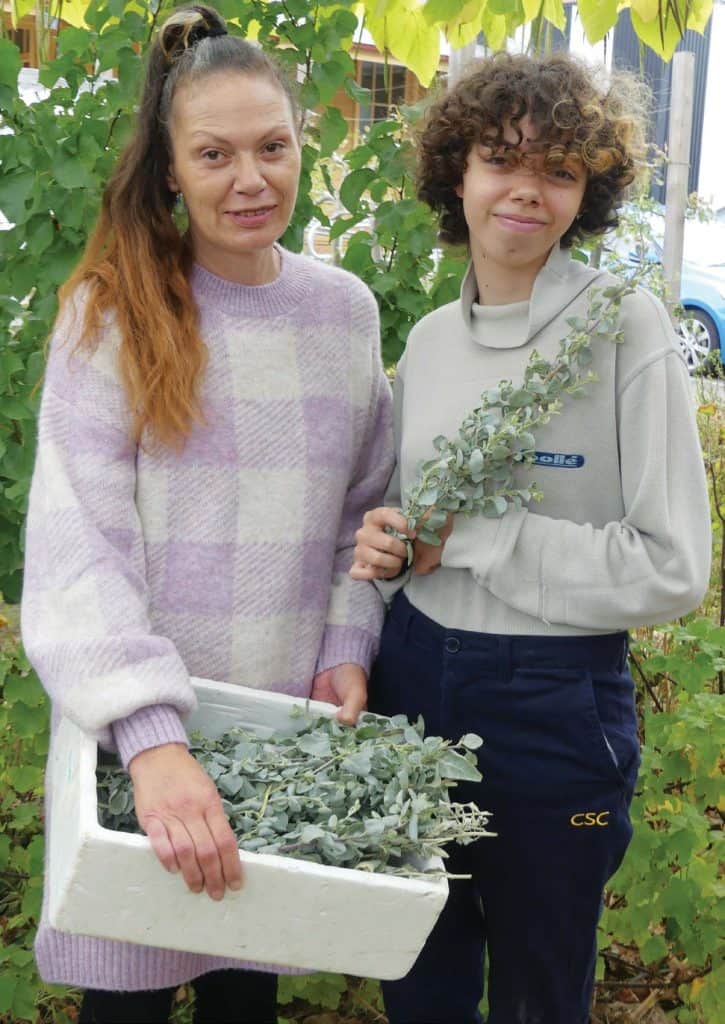
MURNONG MAMMAS – Cultural connections
In the little commercial kitchen of the Castlemaine Community House in central Victoria, the Murnong Mammas are in their happy place. A place that intertwines their love of cooking, the friends that support them, the food that stirs their souls and the ingredients that connect…
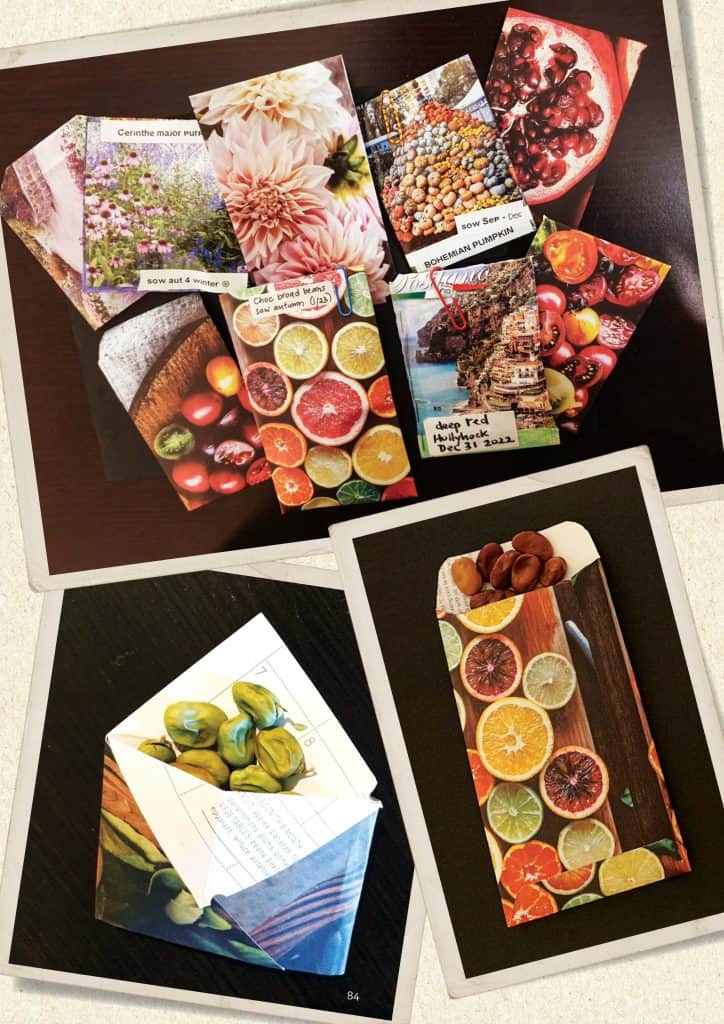
DIY SEED PACKETS – Upcycling
Turn your colourful out of date calendars or old plant and seed catalogues into creative and colourful seed packets.
The recycle bin, worm farm or compost bin are pretty good places to send catalogues and calendars at the end of their practical working life, but upcycling…
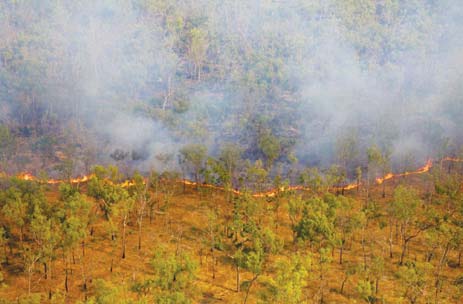
PIP NOTICEBOARD
With warmer weather approaching, the Cultural Fire Credit allows people to invest in Indigenous-led cultural burning to reduce the risk of bushfires and to protect and care for Country. Developed by the Aboriginal Carbon Foundation together with the Firesticks Alliance Corporation, the Indigenous- owned initiative…

PIP PICKS
Cotopaxi
TECA HALF-ZIP WINDBREAKER
Cotopaxi garments are constructed using leftover fabric from other companies’ production runs, meaning each one is a limited edition. This three-season windbreaker is lightweight yet durable, is vented at the back and has elastic binding at the cuffs, hem and hood. As well…
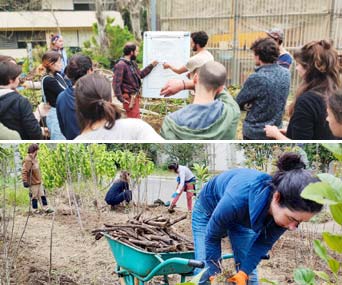
INTERNATIONAL PROJECTS
Practical permaculture research is happening on campus at the University of Lisbon in Portugal. Almost 15 years ago, a group of science students initiated the Permalab project – a Permaculture Living Laboratory to raise awareness of permaculture as a solution to many ecological, social and…
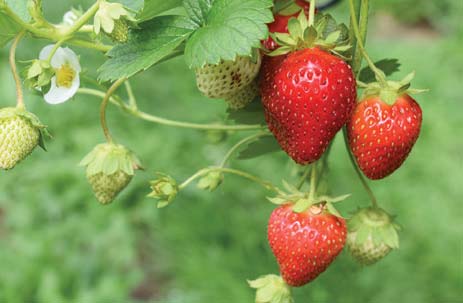
FIVE OF A KIND – Defying The Hungry Gap
As the season changes and signs of new life begins to emerge with the arrival of spring, it’s easy to think about it as a season of abundance. But as we break out of our winter dormancy and the soil begins to warm up, spring…
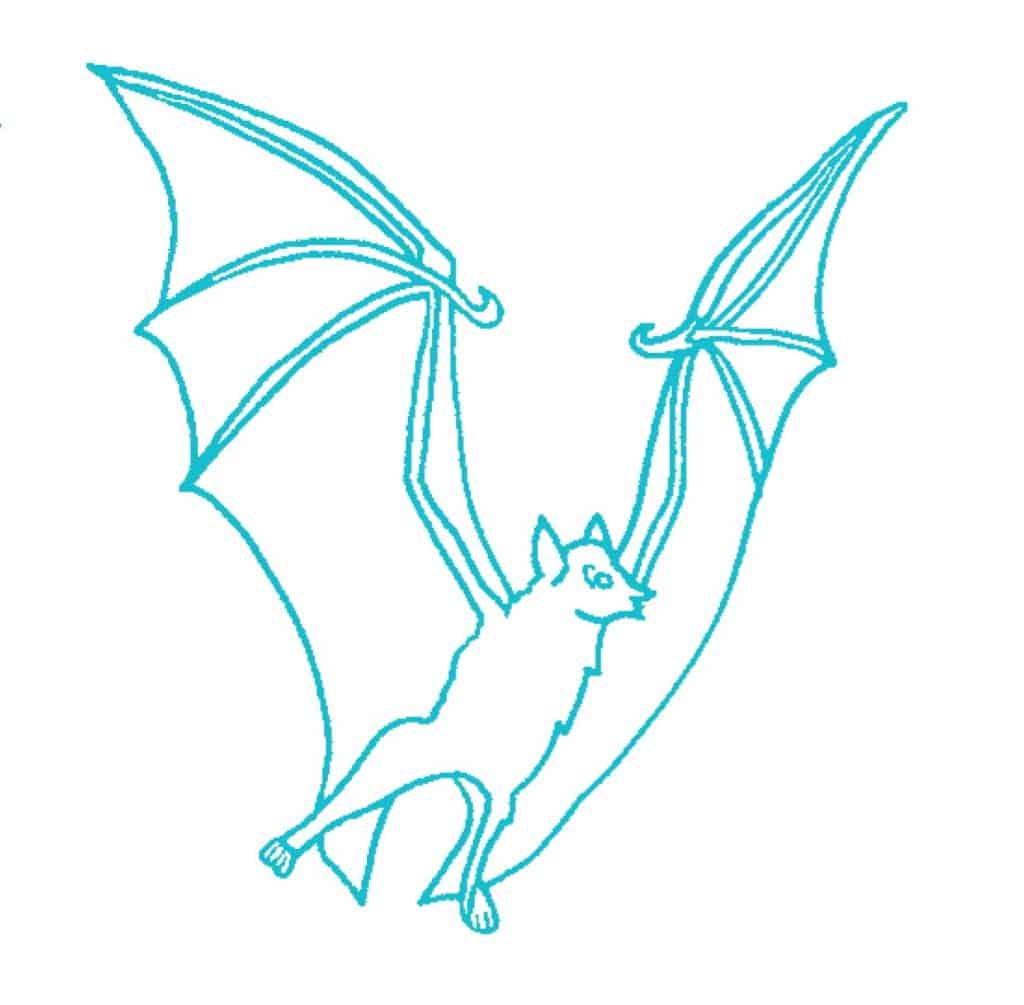
BRAINS TRUST – Flying Foxes
Grey-headed flying foxes are one of the largest bat species in the world; known as megabats. Their faces resemble that of a fox, with light grey fur on the head and a russet collar encircling the neck. Their scientific name is Pteropus poliocephalus. They are…
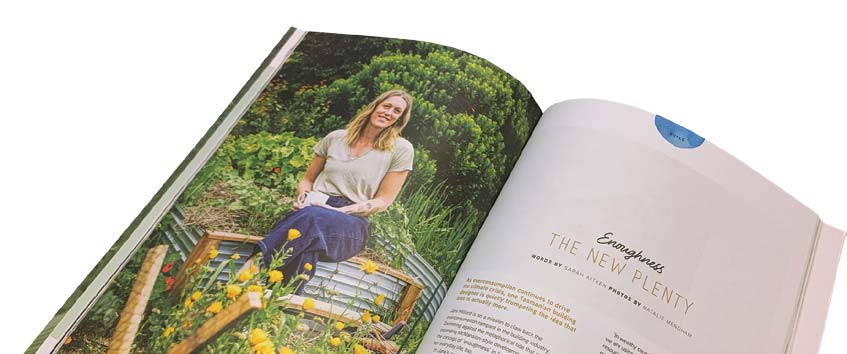
LETTERS TO THE EDITOR
Once again a fabulous publication, I never fail to add to my knowledge base when I indulge in a sit down and immersion amongst these pages.
I picked up an issue from my fabulous local library yesterday and have read it from cover to cover. My…
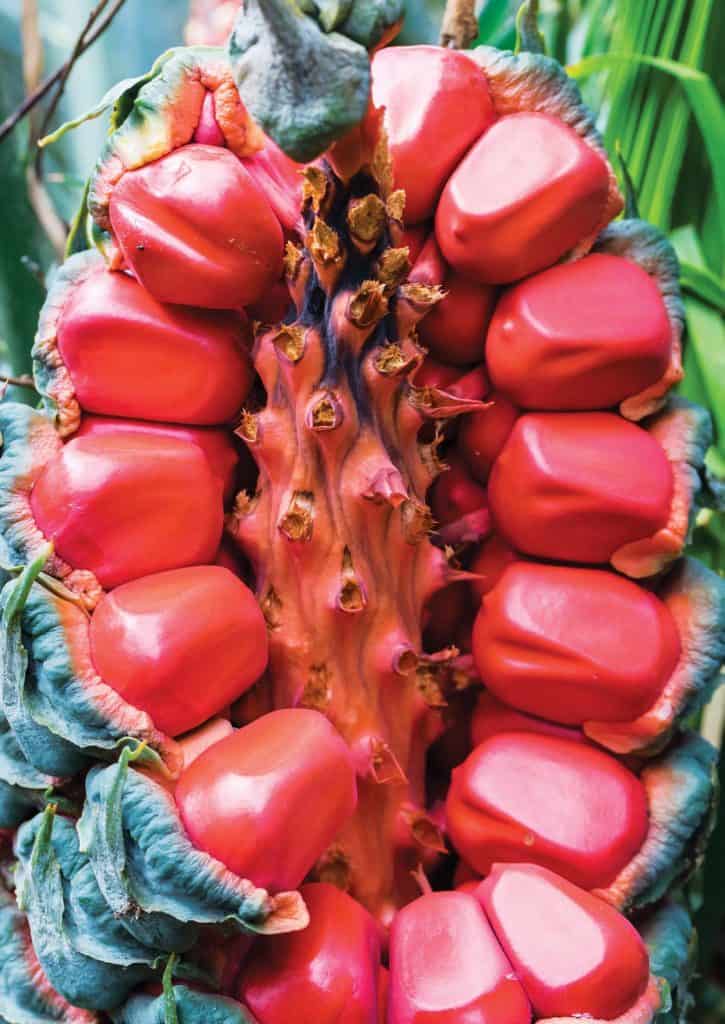
INDIGENOUS KNOWLEDGE – Burrawang
The burrawang belongs to the cycad family. There are roughly 30 species of cycad along the east coast of Australia in tropical and subtropical climates. Other species occur in Central and other parts of Australia.
The botanical name for the burrawang on NSW’s south coast is…

SAVE YOUR SEEDS – Cauliflower
Brassica oleracea var. botrytis – brassica is latin for cabbage, and oleracea for vegetable- like; botrytis means grape-like in Greek.
ORIGINS
This is a vegetable that does not exist in the wild because it derives from kale, which is of ancient cultivation. It was popular in ancient…
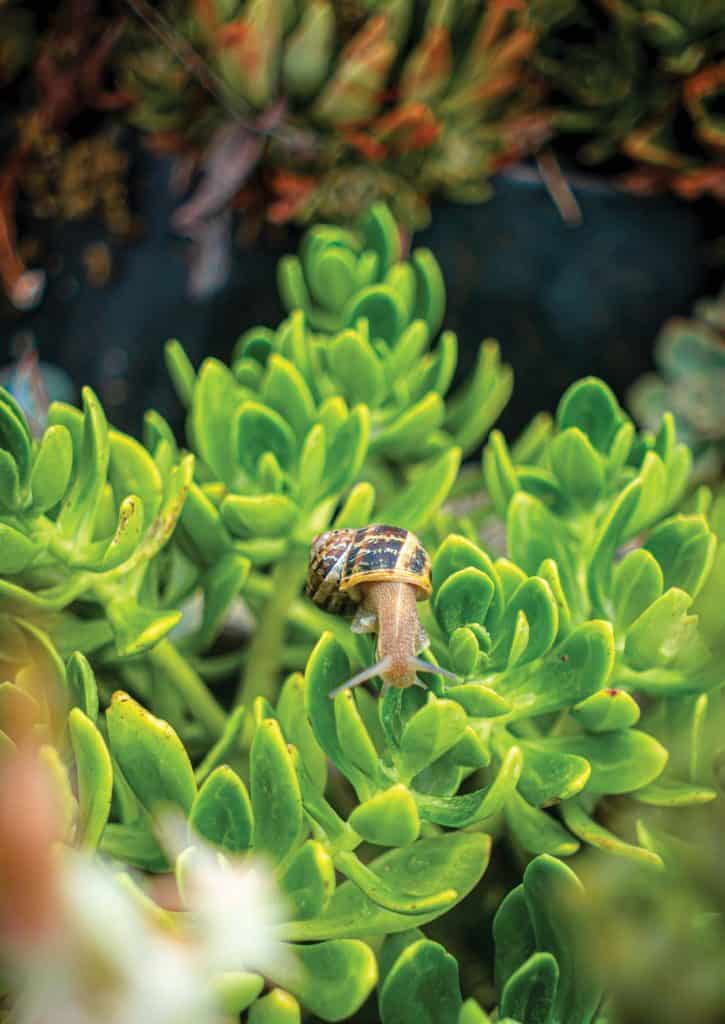
URBAN FORAGING – Snails
The common garden snail Cornu aspersum is a much-loved delicacy in France and a great source of vitamin A, iron, magnesium and calcium. Snails are low in fat, high in protein and are found in nearly all gardens across Australia.
Introduced from Europe over 120 years…
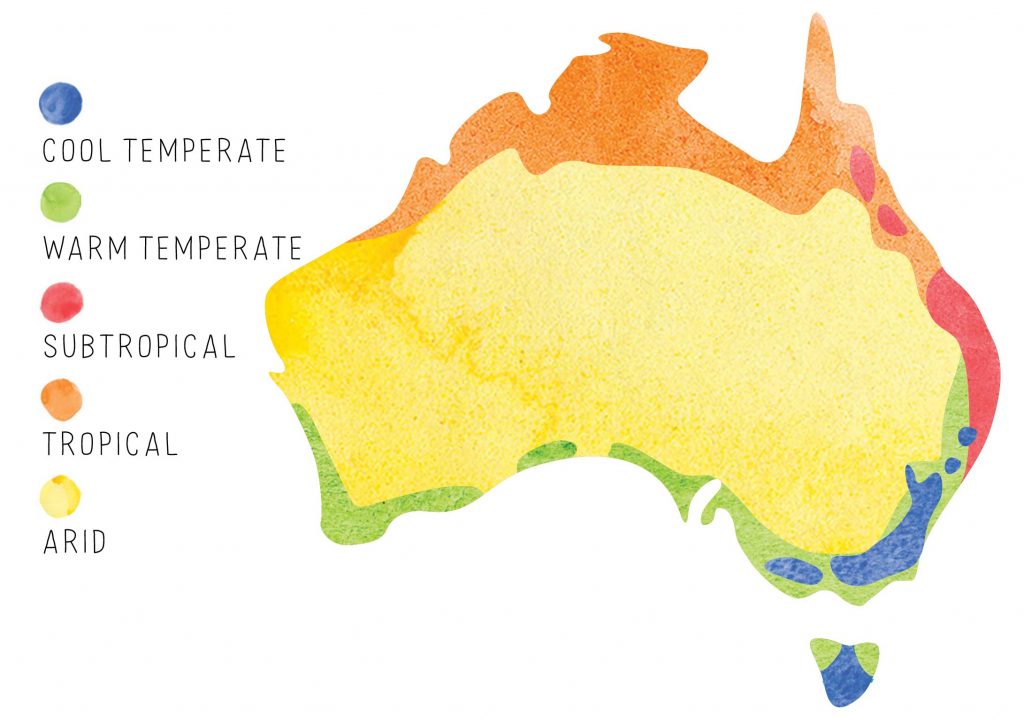
IN THE GARDEN – August-November
Seasonal garden guides for Australian climates
Moon planting
The moon’s phases and its associated gravitational pull has a significant effect on the behaviour of tidal oceans, so it’s easy to understand how the moon can have a similar effect on the moisture in our soils and plants….
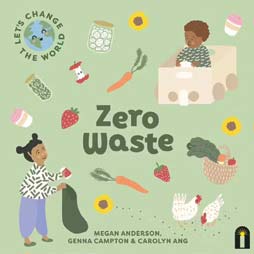
KIDS’ PATCH
We love seeing what kids are growing with their families in their gardens, so snap and email us an image of what you’re harvesting at the moment. Send the photo to editorial@pipmagazine.com.au – and you might even pick up a snazzy prize! This issue’s winner…
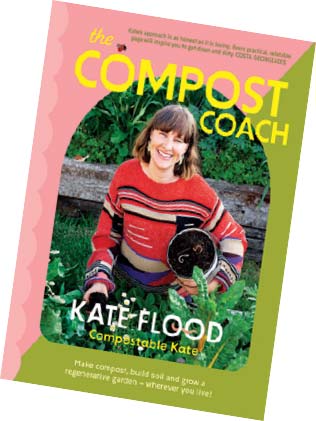
LOOK & LISTEN
Discover how to turn food waste and household carbon into nutrient-rich food for your garden, learn how and why soil matters and make climate activism an everyday mission with this new book by Kate Flood.
The Compost Coach is a colourful, comprehensive and accessible guide to…
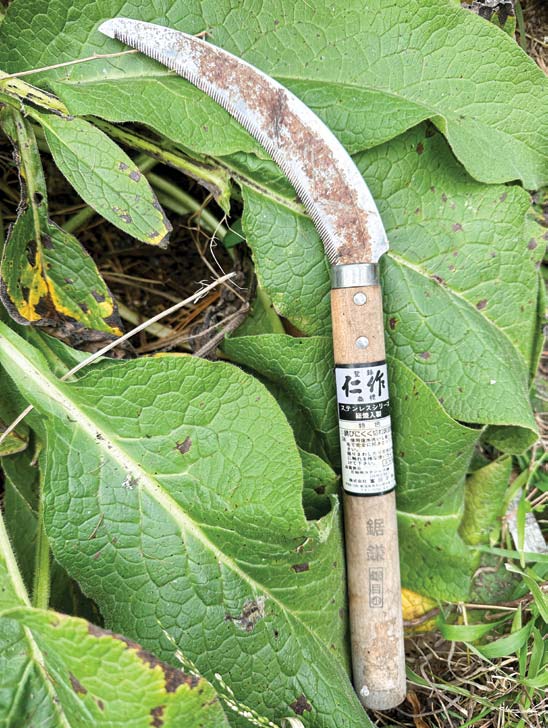
TRIED & TRUE – Product tests
My Japanese sickle is an important member of the close- knit family of tools I call my old trusties. These include a hand trowel, secateurs, a hori hori (part trowel, part knife), scissors and a hand fork. They all live in my tool caddy (Pip,…
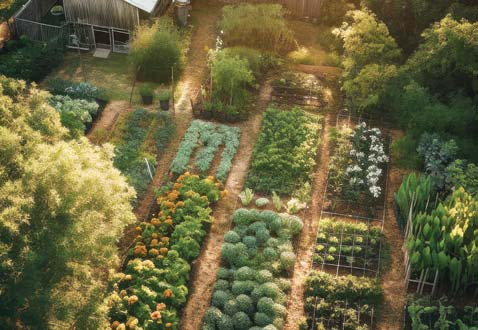
ETHICAL MARKETPLACE
Pip partners with brands who align with its values. Ethical companies producing good- quality products that don’t harm the planet, instead aiming to improve it. Browse more ethical companies you can choose to support at www.pipmagazine.com.au
URBAN REVOLUTION
Urban Revolution is a unique eco and garden store…
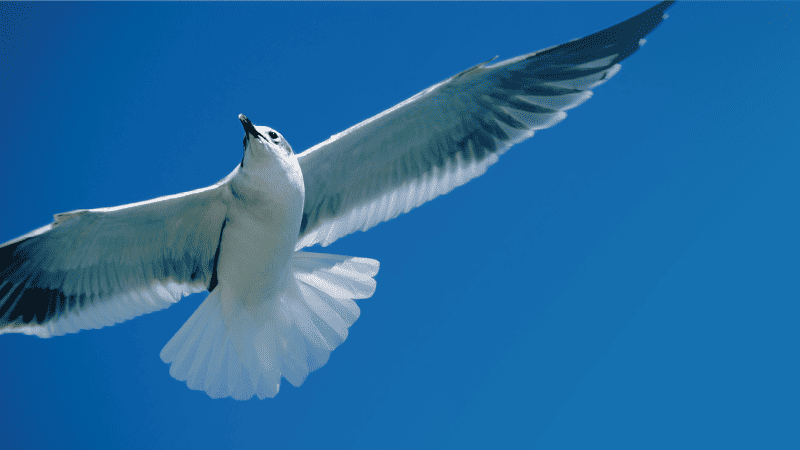
PIP PARTNER – BIOGUANO
Bioguano Australia is a family-owned and operated business that has food-growing heritage spanning 100 years. Over that time, it has developed a deep understanding of what makes a highly effective organic fertiliser that cares for the soil and the planet.
Guano is a word originating from…

